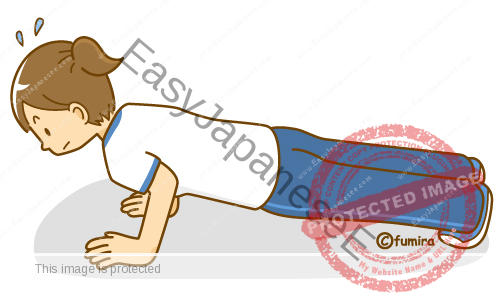
やせるためにエクササイズします。
やせるようにエクササイズします。
Both means the same, “I exercise to lose weight.” ために and ように can both be translated as “in order to.” In these examples, you can use both ために and ように but most of the time, you can use one or the other and which one to use is usually decided by the verb just before ために or ように.
In order to go to a university, I study hard.
(✔)大学(だいがく)に行(い)くために勉強(べんきょう)します。
(✖)大学(だいがく)に行(い)くように勉強(べんきょう)します。
In order to be able to go to a university, I study very hard.
(✖)大学(だいがく)に行(い)けるために勉強(べんきょう)します。
(✔)大学(だいがく)に行(い)けるように勉強(べんきょう)します。
In order to be heard by everyone, I will say it in a loud voice.
(✖)みんなに聞こえるために、大(おお)きな声(こえ)でいいます。
(✔)みんなに聞こえるように、大(おお)きな声(こえ)でいいます。
In order NOT to be heard by everyone, I will say it in a soft voice.
(✖)みんなに聞こえないために、小(ちい)さな声(こえ)でいいます。
(✔)みんなに聞こえないように、小(ちい)さな声(こえ)でいいます。
The following table summarizes when to use which:
Verb before ために / ように |
ために |
ように |
|
Purposeful action(みる、きく、する、いく, etc.) |
✔ |
✖ |
|
Potential Form (meaning of “can”)(できる、たべられる、いける, etc.) |
✖ |
✔ |
|
Condition/State(ある、きこえる、みえる, etc.) |
✖ |
✔ |
|
Negative Form(みない、きかない、いかない, etc.) |
✖ |
✔ |
Also, please note in the last 2 sets of examples, the action takers of the 2 verbs are different. It is “everyone” who “hears (or doesn’t hear)” it and it is “me” who “says” it. In these cases, you cannot use ために.
For more study material for JLPT N4 exam, please visit JLPT N4 Grammar and Vocab and JLPT N4 Kanji pages.

One Reply to “~ために vs ~ように”